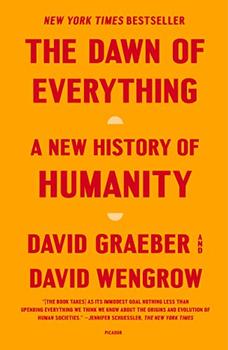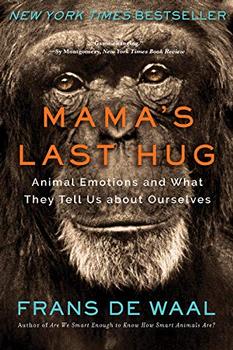Summary | Excerpt | Reviews | Beyond the book | Read-Alikes | Genres & Themes | Author Bio

How a Selfish Ape Invented a New Moral Code
by Michael E. McCulloughA sweeping psychological history of human goodness -- from the foundations of evolution to the modern political and social challenges humanity is now facing.
How did humans, a species of self-centered apes, come to care about others? Since Darwin, scientists have tried to answer this question using evolutionary theory. In The Kindness of Strangers, psychologist Michael McCullough shows why they have failed and offers a new explanation instead. From the moment nomadic humans first settled down until the aftermath of the Second World War, our species has confronted repeated crises that we could only survive by changing our behavior. As McCullough argues, these choices weren't enabled by an evolved moral sense, but with moral invention--driven not by evolution's dictates but by reason.
Today's challenges -- climate change, mass migration, nationalism -- are some of humanity's greatest yet. In revealing how past crises shaped the foundations of human concern, The Kindness of Strangers offers clues for how we can adapt our moral thinking to survive these challenges as well.
McCullough is social scientist, not a philosopher. Although he writes with the disarming alacrity of a born optimist, The Kindness of Strangers is couched in hard, empirical fact. Beginning, suitably, at the beginning of life on earth, McCullough's book traces the origins of altruistic tendencies in various species, patiently explaining the theories of evolutionary psychologists and biologists as to why these tendencies might exist. The cumulative maxim is gloriously stark: "Selfishness beats altruism within groups. Altruistic groups beat selfish groups. Everything else is commentary."..continued
Full Review
 (613 words)
(613 words)
(Reviewed by Grace Graham-Taylor).
 "Virtue signaling," that ubiquitous pejorative flung like so much feces across party lines by political pundits, has created a minor crisis in moral discourse. The phrase was allegedly coined by James Bartholomew in an article appearing in the right-leaning British periodical The Spectator, in which he reacted to what he saw as the rise of people who advertise their moral superiority by venting righteous outrage (arguably venting righteous outrage himself in the process). "The implication," wrote Robert Shrimsley in a follow-up article in the Financial Times, "is that the virtue-signaller does not really believe what they are saying but simply wishes to be admired as a good person."
"Virtue signaling," that ubiquitous pejorative flung like so much feces across party lines by political pundits, has created a minor crisis in moral discourse. The phrase was allegedly coined by James Bartholomew in an article appearing in the right-leaning British periodical The Spectator, in which he reacted to what he saw as the rise of people who advertise their moral superiority by venting righteous outrage (arguably venting righteous outrage himself in the process). "The implication," wrote Robert Shrimsley in a follow-up article in the Financial Times, "is that the virtue-signaller does not really believe what they are saying but simply wishes to be admired as a good person."
As a political put-down, a claim of virtue ...

If you liked The Kindness of Strangers, try these:

by David Graeber, David Wengrow
Published 2023
A dramatically new understanding of human history, challenging our most fundamental assumptions about social evolution―from the development of agriculture and cities to the origins of the state, democracy, and inequality―and revealing new possibilities for human emancipation.

by Frans de Waal
Published 2020
New York Times best-selling author and primatologist Frans de Waal explores the fascinating world of animal and human emotions.
If there is anything more dangerous to the life of the mind than having no independent commitment to ideas...
Click Here to find out who said this, as well as discovering other famous literary quotes!